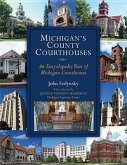The history of the towns of South Dakota revolves around two features that every community hoped to acquire: a railroad and the county seat. If either of these important attributes could be brought to a town, the likelihood for growth and survival of that settlement increased. Dreaming of great things for their communities, the pioneers who settled the prairie spaces of southern Dakota Territory went to extreme measures to ensure that their town would become a commercial and industrial center. Land speculators who owned many of the town sites also hoped that populations would grow and increase the demand for lots so that they could sell them at a profit. Using county records, reports, and archival material, Arthur L. Rusch shows how the resulting "courthouse fights" between rival communities would turn into outright battles including bidding wars, midnight forays to steal county records, and even the destruction of courthouse buildings to ensure the acquisition of a courthouse site. Arthur L. Rusch received his undergraduate and law degrees from the University of South Dakota and has served as a circuit judge in South Dakota's First Judicial Circuit for seventeen years. An avid local historian, he has given numerous presentations, including the Herbert S. Schell Lecture for the University of South Dakota History Department, and has received the Richard Cropp Award for an outstanding paper at the 2008 Dakota Conference sponsored by the Center for Western Studies at Augustana College.
Bitte wählen Sie Ihr Anliegen aus.
Rechnungen
Retourenschein anfordern
Bestellstatus
Storno





